Teaching English in Thailand; My Experience Teaching English in Chiang Mai
UPDATE MAY 2022: Over 10 years ago, before I was a blogger, before I started my non-profit adventure travel company (Mudita Adventures), before I made my first $1m blogging, and before I visited every country in the world, I was stuck in Ireland. I had finished University in the summer of 2006, worked at a summer camp in the USA, travelled around the US and now I wanted to travel. But I had no money. After furiously googling “How to travel with no money”, “Cool stuff to do when you’re broke” and every possible permutation in between, I stumbled across something I knew nothing about ‘Teaching English As A Foreign Language’ (TEFL) or ‘Teaching English in Thailand’. What is a TEFL course? Here’s your answer btw.
I delved a bit deeper. Noticing that as a university graduate, with Engish as my mother tongue, I could get a job teaching English in most countries around the world. So where did I want to move to? When you embrace teaching English, the world is your oyster. You can go anywhere. I was 22 years old, I wanted an adventure. Asia was calling, and what better place to move to and live in than Thailand! So I decided, Teaching English in Thailand was it. Before I long I had studied my TEFL, had booked my one-way flight to start teaching English in Chiang Mai, Thailand. I was off. It was the first step to an amazing 10+ year journey to every country in the world. It was my first leap of faith and in all honesty, I haven’t looked back since.
Table of contents
- Teaching English in Thailand; My Experience Teaching English in Chiang Mai
- Teaching English Thailand (In Chiang Mai); My Experience
- My First Experience in Asia; Teaching English In Thailand
- Finding an Apartment in Chiang Mai
- Teaching English in Thailand. Finding a Job in Chiang Mai
- How Much is an English Teacher’s Salary in Chiang Mai, Thailand?
- What’s Teaching English in Thailand actually like?
- Thai Students
- Looking Back Fondly at Teaching English in Thailand
Teaching English Thailand (In Chiang Mai); My Experience
I was in and around Chiang Mai for the best part of 18 months and it truly was one of the best times of my life. I hope this blog post shines a little light on the lifestyle of teaching English in Thailand. the way the teaching English in Thailand works, and generally discuss the ups and downs as my life as an English Teacher in Thailand. It should also help you deal with all the extra tips, funny stories and crazy shenanigans from later blog posts.
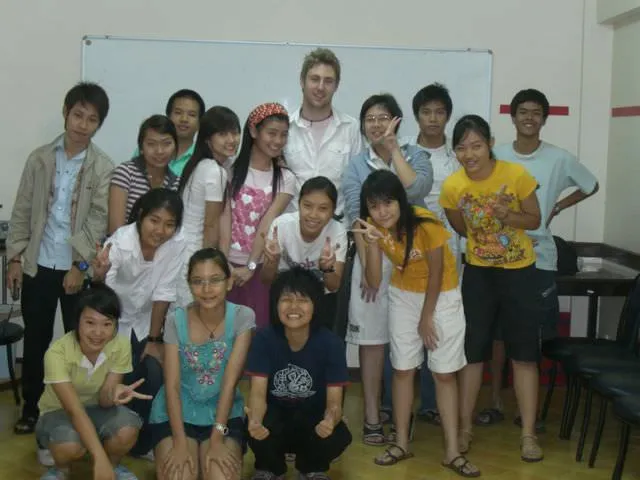
My First Experience in Asia; Teaching English In Thailand
I arrived in Chiang Mai to study for a month. Soon, I finished my TEFL qualification and I was now fully qualified to teach English in pretty much any country in the world. That qualification gave me a greater feeling of freedom than any other course I had ever finished. My university degree included! To know that now, no matter what life throws at you, you’re can fly to Costa Rica, or China, Thailand or Tunisia tomorrow and legally look for work there is exhilarating. And to do this day I find myself casting an eye on jobs available in obscure countries, knowing I could go there. It’s crazy.
When I signed up to my TEFL, I also signed up with an agency to help me get a job. I was too scared to fly solo, so I signed up to the agency to give me a bit of a safety net. They signed me to a contract to study my TEFL in Thailand, but then after finishing they’d fly me to China and I’d teach English there.. But after spending some time in Chiang Mai and truly falling in love with Thailand I reneged on my Chinese contract to try to carve out a living in Chiang Mai.
Finding an Apartment in Chiang Mai
First up, sorting out accommodation. My budget was tight, very tight. Initially, I had been living in guest houses and hostels, which although was admittedly fun, all those late nights and new friends weren’t overly conducive to me setting up a new life in a new country. All the modern condos that Thailand houses these days were beyond my means at that stage of my life. So I jumped on my rented scooter and scoured the city to find something that would work. I was figuring that I needed to survive on around 15,000THB per month ($450USD or so), which meant I could spend around 4000THB ($120) or so on rent.
Soon I managed to find a serviced apartment in the north of the city, on Changpuak Road. For around 4000 Baht per month, I could have a small studio in the Wipanan Mansion. Instantly I felt at home. This was probably my first indication of where life in Thailand can shine brighter than most many countries in the world.
Within a month I was good friends with all the staff – the receptionists, the owners of the property, the cleaners. So much so that they wouldn’t let me leave the building on an empty stomach, or head to a job interview with a wrinkled shirt. They’d insisting I eat with them before I go out, and have that shirt ironed while I wait. It can be a scary thing to move to a new country on your own, with a one-way ticket, but throwing yourself into situations like this, saying ‘yes’ to people and socialising instantly settles you down.
There are so many things to do in Chiang Mai. And seemingly every week, Chiang Mai and Thailand seems to have a public holiday or some religious celebration. The staff would bring us along and show us the ‘real’ Thailand, on so many occasions. 2 particularly amazing experiences were the Visakha Bucha Festival where we trek to a beautiful temple, Doi Suthep, on top of the mountain in the middle of the night or Loy Krathong, an amazing festival where we let off lanterns into the sky and little vessels down the Ping River. Never would there be an event on without an invite from the staff there, the Thai people are very, very special.
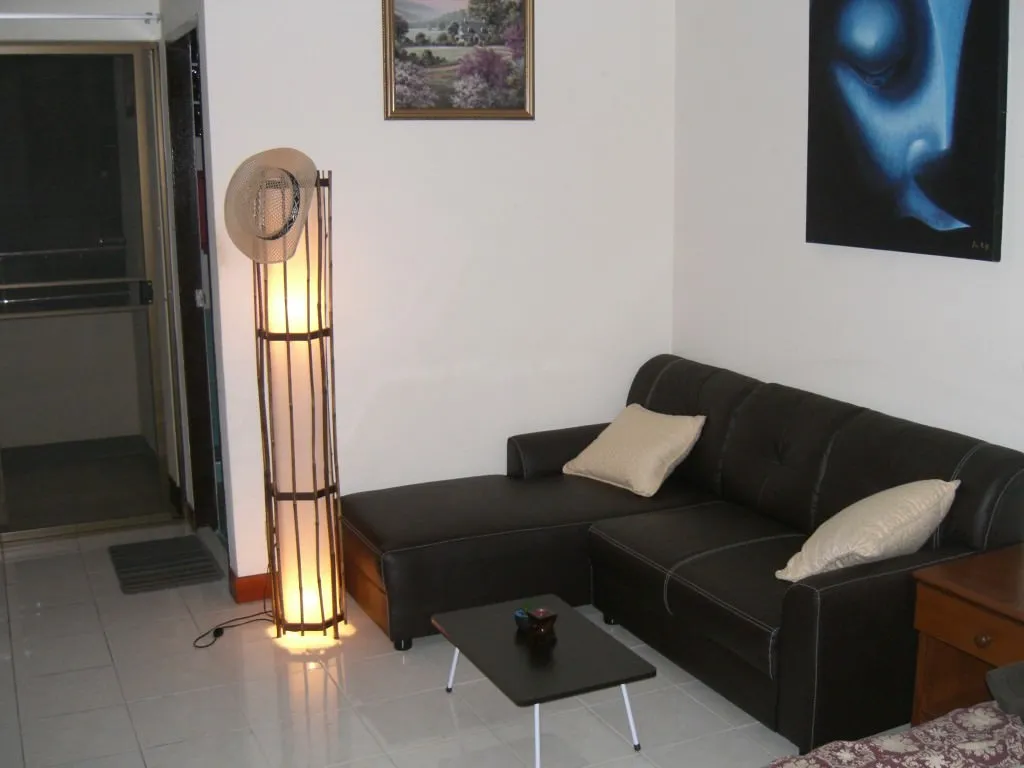
Teaching English in Thailand. Finding a Job in Chiang Mai
My accommodation was sorted. I had rented a scooter for another 2000THB ($50) a month. Now it was time to find work. I had zero income and almost zero life savings. I had spend almost tall the money I had ‘earned’ from my Medical Research in Belfast trails on the flight and TEFL course in Thailand. It was imperative I found work within a month or so. Knowing I had turned down a decent paying job in China to set-up in Chiang Mai put some additional pressure on me. I had to make it work.
Government School or Private Language School?
I researched all the Private English Language Schools in Chiang Mai. Personally, I had decided to avoid working for Government schools for a number of reasons. Number 1 was that it would feel too much like the rat race. 9-5 hours, a recognisable structured hierarchy, too many students in each class. I wanted an adventure. So a Language School, working in evenings, at random hours, with private older students, suited me perfectly.
After a few applications, proudly bearing the news that I was a graduate with a recognised TEFL, interviews were flooding in. I was offered a position at the British Council and had a number of other schools asking me to work there, in the end, I decided to work at AUA, one of the most famous language institutions in the country with branches in every city. The facilities, by Thai standards, were great:
- Class sizes ranging from 5-20
- Air-conditioners!! (even in Universities in Thailand that wasn’t guaranteed)
- Student ages ranging from 15-30, average around 18 years old. I didn’t want to be teaching children, so this was perfect.
- A structured syllabus with textbooks and workbooks. Coming from the West we expect this to be a pre-requisite of a teaching Institution. In South-East Asia, you can’t guarantee that’ll be the case. Do your research before you accept a position).
- Working hours of 5.00 pm – 8.15 pm every day and all day Saturday. This was a deal sealer for me. I would have all day each day to explore the city and the region, to drive around on my little scooter, to study Thai and hit the gym, and try to transform my body.
- The majority of the other teachers there were all relatively young so it gave me an automatic social group too. Something pretty important when you’re setting up a new life in a foreign country.
How Much is an English Teacher’s Salary in Chiang Mai, Thailand?
The question on everyone’s lips.
You don’t sign up for teaching English in Thailand for the money, that’s for sure. Head to South Korea, Eastern China, or the Middle East for that. My salary was around 23,000 Baht a month ($700). As a 22-year-old, that was easily enough for me to have a fun, Thai-style life in Chiang Mai. I had a decent studio serviced apartment (wifi, air-con etc). My scooter was rented monthly. Local Thai food for breakfast, lunch and dinner (35THB ($1) or so a dish). I was partying a lot. Each holiday meant travelling the region, and I still managed to save a couple of hundred bucks here and there for my travels when I finished my contract one year later. When I’d set off one-way to travel to Bangladesh, where my journey to every country in the world would begin properly!
Foregoing my Western vices was pretty tough though. With my salary, that meant almost no foreign food, only local beers (no imports, which meant no Guinness, heartbreaking for an Irishman!), my travels were all overland on romantic but tortuous bus journeys, sleeping in run-down Guest Houses in China, Cambodia, Laos or wherever I had traveled too. Life was good. I was seeing the world, learning a new culture, exploring a region and making new friends. It was one of the happiest times in my life, and although I had to think about money each day, I felt alive. Nothing but good memories.
What’s Teaching English in Thailand actually like?
Honestly speaking, I don’t think I’m a natural English teacher. But I threw myself into the experience with all my heart. As a first-time English teacher, it can be quite stressful standing up in front of a classroom of people, all eyes on you, with nowhere to hide. The first month for me was stressful indeed. I would arrive at the school each day around 1 pm or so, 4 hours before the classes began at 5pm. I’d prepare my lessons diligently. I would check today’s lesson AND tomorrow’s lesson as I was scared of running out of content and being left at the front of the class with nothing to say! As the months went on though, I learned how to pace the lessons better. Learning how to expand on topics adlib; how to manage a classroom and its students.
By month 4 or so, I was actually enjoying my job. My lesson planning was much faster. Now I could come to school around 3-4 pm now for my 5 pm classes. The students, with an average age of 18 or so (when I was only 22) responded well to me, never once was I disrespected, or challenged. The structure of my school helped a lot, working through modules, and my co-teachers were also a source of help too, extra activities, the advice here and there. This kind of thing was priceless for a newbie teacher like me.
Thai Students
Thai students are literally a pleasure to teach, it’s all smiles, light-hearted behaviour and respect. The one thing I noticed most about Thai students in comparison with the West is a lack of ego. Our egos often create such friction – so worried to let ourselves go. In the Thai classroom, I found quite the opposite and teaching there was awesome because of this, also the students actually seem grateful for you teaching them – a notion that is very foreign to anyone who has taught in a British comprehensive school I’m sure.

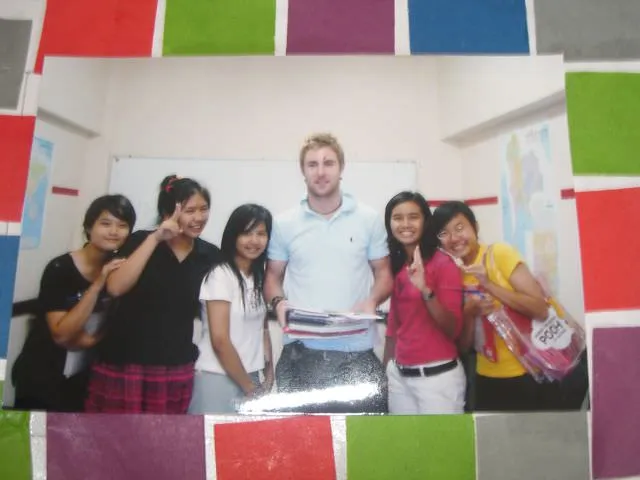
In language schools in Thailand, you have no teaching assistant to help you, no bilingual staff in the room, once you are in the classroom it’s all on you. Initially, then, I was feeling the pressure. Remember, you don’t have to speak the language of the country you’re in to teach English there. So when you’re teaching English in Thailand, like I was, you don’t have to speak Thai. In fact, if you can speak Thai, you’re not allowed to use it in the classroom. The best system for Language appropriation is full immersion, so you should only communicate in the language you’re teaching, English.
In theory that’s wonderful, but as a young, new English teacher, it can be pretty scary. A room full of people, sometimes at a beginner-English level, and you have to get your points across, new vocabulary, grammatical rules. It sounds impossible, I know, but it works, and it works well. Soon I was in the swing of things, as you will be, and your communication skills develop hugely. A skill I cherish as I travel the world these days.

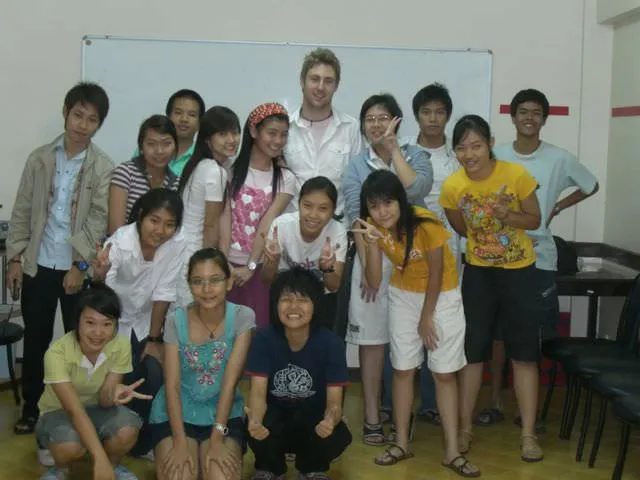
In private language schools in Chiang Mai, Thailand term times generally lasted 6 weeks. Each lesson was around an hour long. So every evening we had 3 sets of one-hour lessons. I then taught those kids every day for the 6 weeks so naturally, you make a real connection. Student’s English levels varied a lot from absolute beginner to university students studying business English. Knowing that I was really thankful for my TEFL training. I know many countries who don’t require a TEFL course and to be honest, I would have been 100% lost in a classroom Teaching English in Thailand without it. The thought of standing up, educating people, with no formal training isn’t fair on you. Nor is it fair to your students.
Looking Back Fondly at Teaching English in Thailand
Teaching English in Thailand, I worked at AUA for over a year. I made lifelong friends and genuine connections with my students, some of whom I’m still in contact with 10 years later. Every day was fun at AUA and I would definitely recommend working there if you are a first-time teacher. The benefits are amazing. Low levels of stress, lots of autonomy, cool kids and awesome coworkers. Good times and ones I like back at fondly.
Sometimes looking back at my time Teaching English in Thailand, I feel nostalgic. Sure I was broke and pretty clueless, but what an adventure. I was young, free, with the whole world waiting for me to explore. Teaching English changed my life, one of the best decisions I ever made. I couldn’t recommend it highly enough. It was the first step I took to create the life I live today. If you don’t follow me, you can read more about my new life here.
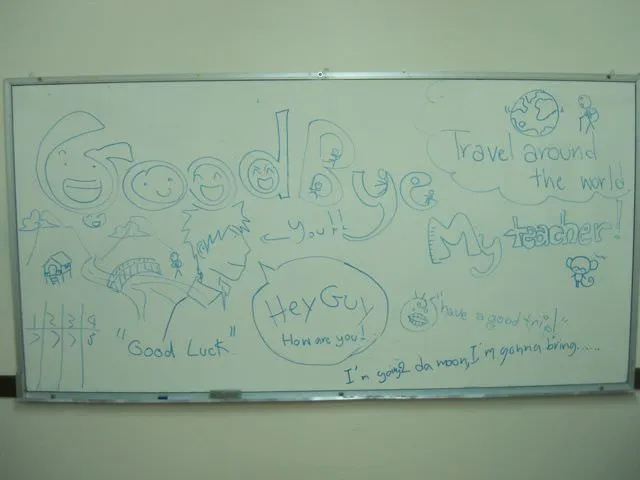
Remember, never travel without travel insurance! And never overpay for travel insurance!
I use HeyMondo. You get INSTANT quotes. Super cheap, they actually pay out, AND they cover almost everywhere, where most insurance companies don't (even places like Central African Republic etc!). You can sign-up here. PS You even get 5% off if you use MY LINK! You can even sign up if you're already overseas and traveling, pretty cool.
Also, if you want to start a blog...I CAN HELP YOU!
Also, if you want to start a blog, and start to change your life, I'd love to help you! Email me on johnny@onestep4ward.com. In the meantime, check out my super easy blog post on how to start a travel blog in under 30 minutes, here! And if you just want to get cracking, use BlueHost at a discount, through me.
Also, (if you're like me, and awful with tech-stuff) email me and my team can get a blog up and running for you, designed and everything, for $699 - email johnny@onestep4ward.com to get started.
Do you work remotely? Are you a digital nomad/blogger etc? You need to be insured too.
I use SafetyWing for my digital nomad insurance. It covers me while I live overseas. It's just $10 a week, and it's amazing! No upfront fees, you just pay week by week, and you can sign up just for a week if you want, then switch it off and on whenever. You can read my review here, and you can sign-up here!













 As you know, blogging changed my life. I left Ireland broke, with no plan, with just a one-way ticket to Thailand
and no money. Since then, I started a blog, then a digital media company, I've made
more than $1,500,000 USD, bought 4 properties and visited (almost) every country in the world. And I did it all from my laptop as I
travel the world and live my dream. I talk about how I did it, and how you can do it too, in my COMPLETELY FREE
Ebook, all 20,000
words or so. Just finish the process by putting in your email below and I'll mail it right out to you immediately. No spam ever too, I promise!
As you know, blogging changed my life. I left Ireland broke, with no plan, with just a one-way ticket to Thailand
and no money. Since then, I started a blog, then a digital media company, I've made
more than $1,500,000 USD, bought 4 properties and visited (almost) every country in the world. And I did it all from my laptop as I
travel the world and live my dream. I talk about how I did it, and how you can do it too, in my COMPLETELY FREE
Ebook, all 20,000
words or so. Just finish the process by putting in your email below and I'll mail it right out to you immediately. No spam ever too, I promise!
